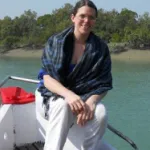The Commonwealth Marine Economies (CME) Programme is helping Commonwealth Small Island Developing States preserve their marine environments and make the most of their maritime resources in order to catalyse sustainable economic development, while preserving the health of the ocean.
The small size, remoteness, narrow resource and export base make Small Island Developing States (SIDS) vulnerable to external shocks from natural hazards, sea-level rise and other impacts of climate change such as extreme weather events. However, their large marine estates relative to their land area present a huge opportunity to address these threats while also boosting their economic growth, tackling unemployment, reducing poverty and increasing food security through effective, science-based marine planning.
The UK Government funded CME Programme was launched in 2016 to help vulnerable Commonwealth SIDS [link to eligible SIDS list below] make the most of their natural resources and enable safe and sustainable economic growth. The programme is delivering world leading marine expertise through a strategic partnership of the National Oceanography Centre (NOC), the United Kingdom Hydrographic Office (UKHO) and the Centre for Environment, Fisheries and Aquaculture Science (CEFAS), and comprises three broad components:
- Government engagement and dialogue. The UK Government is working alongside the SIDS Governments at a pace and technical level that matches the capacity and needs of the individual countries. Only by engaging in partnership with SIDS throughout the process is it possible to respond to national needs and priorities.
- Scientific research and capacity building. To sustainably manage and use marine resources it is vital to properly understand them. The programme has been collecting data, undertaking scientific research and delivering capacity building activities against a clear action plan developed from country requests.
- Preparation of national marine economy plans. The programme will develop bespoke national marine economy plans in partnership with local governments (where requested) that assess the existing national maritime economies and identify the opportunities and obstacles to development that need to be addressed to drive economic growth and help alleviate poverty.




